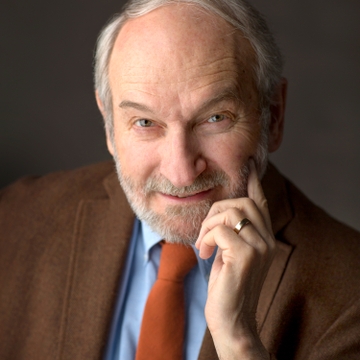Program Provides Research Opportunities for Undergraduate Students

Bolstering Border Health
UNM Partners in New Family Medicine Residency Rotation
The wave of migrants seeking asylum at New Mexico's southern border last summer posed an urgent humanitarian crisis, threatening to overwhelm local health care resources. That prompted the New Mexico Department of Health to turn to the UNM Health Sciences Center for help.
UNM's Office for Community Health, the Department of Family & Community Medicine, the Southern New Mexico Family Medicine Residency Program and the New Mexico Primary Care Training Consortium (NMPCTC) partnered in a pilot project to recruit residents for an elective month-long rotation addressing health and social issues along the border.
"The Department of Health is so supportive of this skilled, professional resource that after this coming pilot year, it has committed to funding border resident rotations for years into the future," said Arthur Kaufman, MD, UNM's Vice Chancellor for Community Health.
"The Southern New Mexico Family Medicine Residency faculty have developed the curriculum and will supervise the residents on-site, and the NMPCTC will provide recruiting, logistical and administrative support," he said.
Las Cruces native Erin Corriveau, MD, a 2009 graduate of UNM's family medicine residency and assistant professor in the University of Kansas Department of Family Medicine, had a preview of what they might encounter when she spent 10 days working in the Deming and Las Cruces shelters in early July.
The shelter, housed in a rusting World War II-era airplane hangar at the Deming Municipal Airport, saw a steady stream of migrants arriving in U.S. Border Patrol vans - many of them families with young children. Conditions were sweltering in the hangar, which had fans, but lacked air conditioning.
"After they were seated, the volunteers used scissors to cut off their detention bracelets," Corriveau recalled. "One woman started sobbing. We let them know we would do our best to feed them, hydrate them, provide medical care and help with transportation planning."
The visitors were able to shower and change into donated clothing. Many spent the night before finding transportation to their destinations. Corriveau treated people for a host of complaints, including dehydration, broken bones and the flu. "We sent one very ill child to the hospital," she said.
Interpreters were on hand to help her communicate with patients, but Corriveau didn't need any help figuring out how to kick a soccer ball around inside the cavernous building with the children. "I think we had fun together, which helped with trust," she said.
Volunteers from around the country were joined by New Mexico Department of Health (DOH) nurses and staffers, as well as physicians donating their time through the New Mexico Medical Reserve Corps.
John Andazola, MD '97, has headed the Las Cruces-based Southern New Mexico Family Residency since 2009. The program has seen asylum seekers on and off for five years, he says.
The new state funding will provide for two residents to rotate in Las Cruces at a time. "It's not just focused on asylum care," he says. "We're looking at the border health needs of the state and the bi-national health needs with Mexico."
The residents will be asked to record and reflect on their experiences and draft suggestions to bring back to their home programs. Andazola also hopes that the new rotation will lay the foundation for creating a border health fellowship.